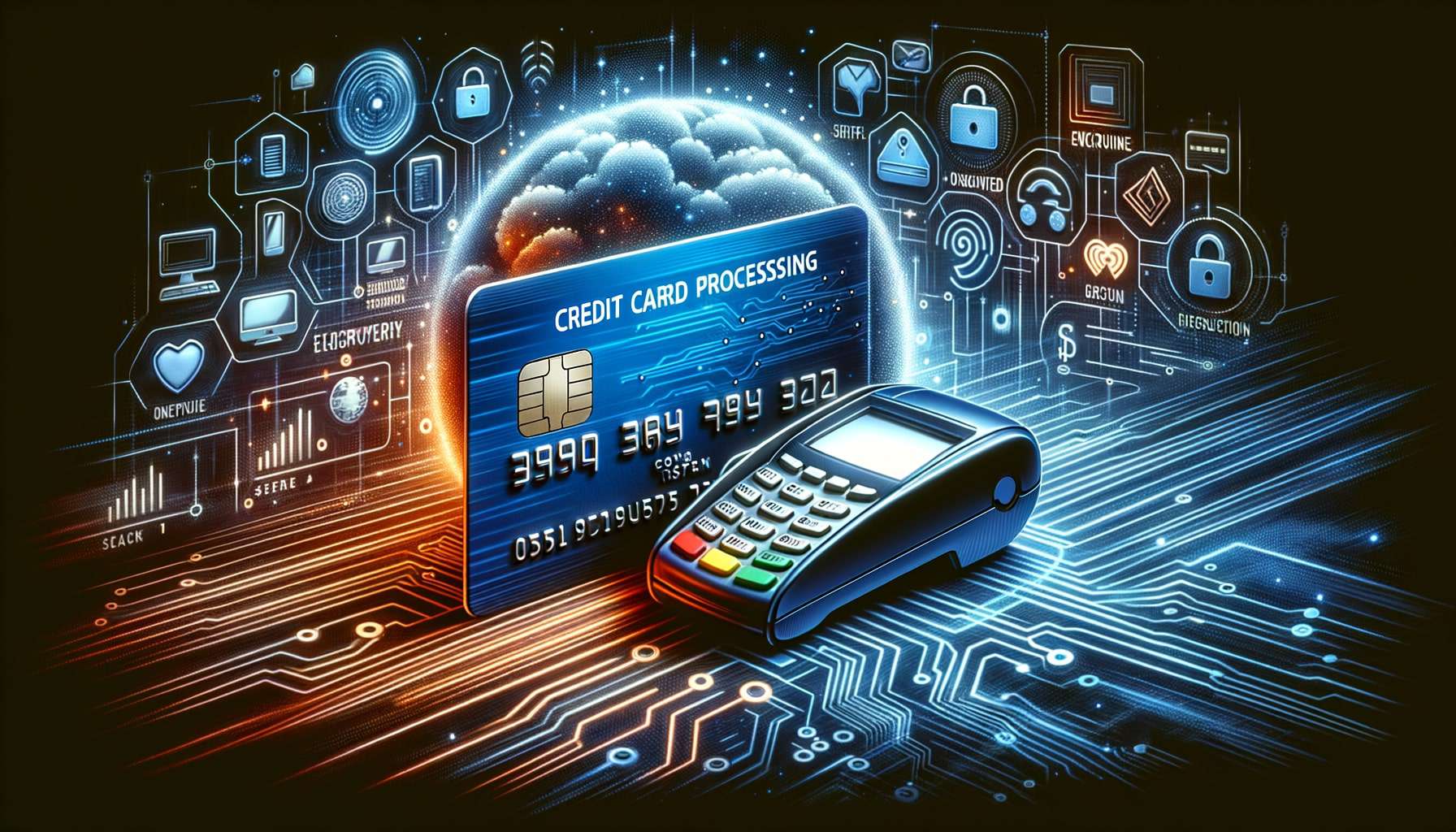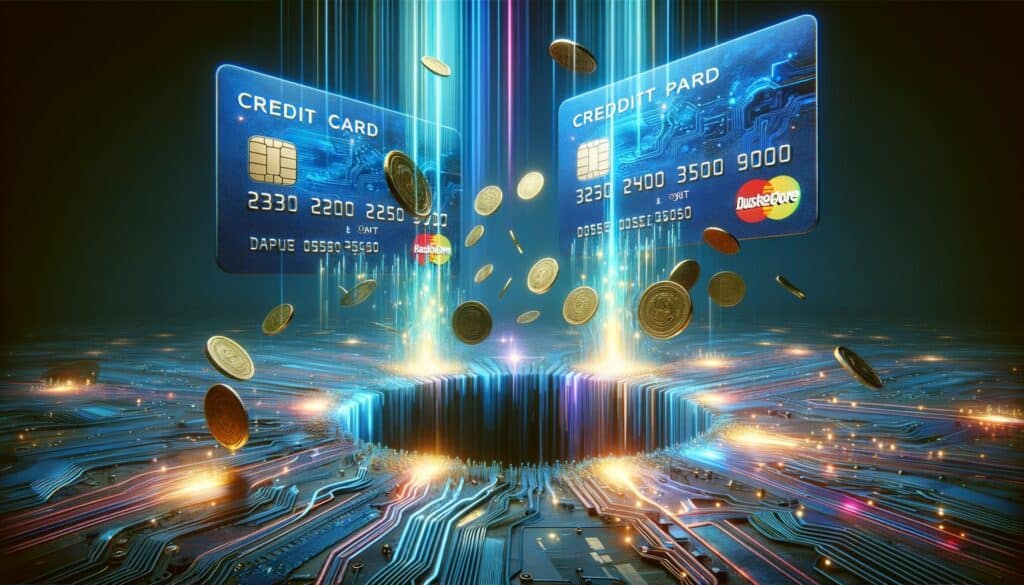
By Amanda Hoglund October 11, 2024
In today’s digital age, credit card processing has become an essential part of conducting business transactions. Whether you run a small online store or a large retail chain, accepting credit card payments is crucial for attracting customers and maximizing sales.
This comprehensive guide will provide you with all the information you need to understand credit card processing, including how it works, the different methods available, choosing the right processor, fees involved, security measures, benefits and drawbacks, common challenges, and frequently asked questions.
How Credit Card Processing Works
Credit card processing involves a series of steps that enable businesses to accept and process payments made through credit cards. The process begins when a customer makes a purchase using their credit card. The card information is then transmitted to the merchant’s payment processor, which acts as an intermediary between the merchant and the customer’s credit card issuer. The payment processor verifies the card details, checks for available funds, and ensures the transaction is secure.
Once the transaction is approved, the payment processor sends a request to the customer’s credit card issuer to transfer the funds to the merchant’s account. The issuer then either approves or declines the request based on the customer’s available credit and other factors. If approved, the funds are transferred to the merchant’s account, and the transaction is considered complete.
Types of Credit Card Processing Methods

There are several methods available for processing credit card payments, each with its own advantages and considerations. The most common methods include:
- Point of Sale (POS) Systems: POS systems are widely used in retail stores and restaurants. They consist of hardware and software that allow merchants to accept credit card payments at the point of sale. These systems typically include a card reader, cash register, and software that integrates with the merchant’s inventory and accounting systems.
- Mobile Payment Solutions: With the rise of smartphones, mobile payment solutions have gained popularity. These solutions enable businesses to accept credit card payments using a mobile device, such as a smartphone or tablet. Mobile payment apps, such as Square and PayPal Here, provide merchants with a card reader that can be plugged into the mobile device’s audio jack or connected via Bluetooth.
- Online Payment Gateways: Online businesses rely on payment gateways to process credit card payments made through their websites. Payment gateways securely transmit the customer’s card information to the payment processor for verification and approval. Popular payment gateways include PayPal, Stripe, and Authorize.Net.
Choosing the Right Credit Card Processor for Your Business
Selecting the right credit card processor for your business is crucial for ensuring smooth and secure payment processing. Consider the following factors when choosing a credit card processor:
- Compatibility: Ensure that the processor is compatible with your existing hardware and software systems. If you have a physical store, check if the processor supports your POS system. For online businesses, compatibility with your chosen payment gateway is essential.
- Security: Look for a processor that prioritizes security measures, such as encryption and tokenization, to protect sensitive customer data. Compliance with Payment Card Industry Data Security Standard (PCI DSS) is also crucial to ensure the highest level of security.
- Pricing and Fees: Understand the pricing structure and fees associated with the credit card processor. Common fees include transaction fees, monthly fees, chargeback fees, and statement fees. Compare different processors to find the most cost-effective option for your business.
- Customer Support: Consider the level of customer support provided by the processor. Look for a processor that offers 24/7 support and has a reputation for resolving issues promptly.
Understanding Credit Card Processing Fees

Credit card processing fees can vary depending on the processor and the type of transaction. It’s important to understand the different types of fees involved to accurately calculate the cost of accepting credit card payments. Here are some common fees you may encounter:
- Interchange Fees: Interchange fees are charged by the credit card networks, such as Visa and Mastercard, and are typically a percentage of the transaction amount plus a flat fee. These fees are paid by the merchant to the card issuer and vary based on factors such as the type of card used, the transaction method, and the merchant’s industry.
- Processor Fees: Processor fees are charged by the payment processor for their services. These fees can include transaction fees, monthly fees, setup fees, and equipment fees. It’s important to carefully review the pricing structure and fee schedule provided by the processor to understand the total cost.
- Chargeback Fees: Chargeback fees are incurred when a customer disputes a transaction and requests a refund from their credit card issuer. These fees are typically charged by the processor to cover the administrative costs associated with handling chargebacks.
- Non-Qualified Fees: Non-qualified fees are additional charges that may apply to certain types of transactions that do not meet specific criteria set by the processor. These fees are often higher than standard transaction fees and can be incurred if the transaction is considered high-risk or if the card is not present during the transaction.
Security Measures in Credit Card Processing

Security is a top priority in credit card processing to protect both merchants and customers from fraud and data breaches. Here are some key security measures implemented in credit card processing:
- Encryption: Encryption is the process of converting sensitive data, such as credit card numbers, into unreadable code to prevent unauthorized access. Payment processors use encryption algorithms to secure cardholder data during transmission and storage.
- Tokenization: Tokenization replaces sensitive card data with a unique identifier called a token. The token is used for transaction processing, while the actual card data is securely stored by the payment processor. This reduces the risk of exposing cardholder data in the event of a data breach.
- PCI DSS Compliance: The Payment Card Industry Data Security Standard (PCI DSS) is a set of security standards established by the major credit card networks to protect cardholder data. Compliance with PCI DSS is mandatory for all businesses that accept credit card payments and involves implementing security measures, conducting regular audits, and maintaining secure systems.
- Fraud Detection and Prevention: Payment processors employ advanced fraud detection tools and algorithms to identify and prevent fraudulent transactions. These tools analyze various factors, such as transaction patterns, IP addresses, and cardholder behavior, to detect suspicious activity and flag potential fraud.
Benefits and Drawbacks of Credit Card Processing
Credit card processing offers numerous benefits for businesses, but it also comes with certain drawbacks. Understanding these pros and cons can help you make an informed decision about implementing credit card processing for your business.
Benefits of Credit Card Processing
- Increased Sales: Accepting credit card payments expands your customer base and increases sales potential. Many customers prefer the convenience and security of using credit cards for purchases.
- Faster Payments: Credit card transactions are processed electronically, resulting in faster payment settlements compared to traditional payment methods like checks.
- Improved Cash Flow: With faster payment settlements, businesses can improve their cash flow and have access to funds more quickly.
- Enhanced Customer Experience: Accepting credit cards provides a seamless and convenient payment experience for customers, leading to higher customer satisfaction and loyalty.
Drawbacks of Credit Card Processing
- Processing Fees: Credit card processing fees can eat into your profit margins, especially for small businesses with low transaction volumes. It’s important to carefully consider the fees associated with credit card processing and factor them into your pricing strategy.
- Chargebacks: Chargebacks can be a significant challenge for businesses, as they can result in lost revenue and additional fees. It’s important to have proper policies and procedures in place to minimize chargebacks and resolve disputes efficiently.
- Security Risks: Credit card processing involves handling sensitive customer data, making businesses vulnerable to data breaches and fraud. Implementing robust security measures and staying compliant with industry standards is crucial to mitigate these risks.
- Dependency on Technology: Credit card processing relies heavily on technology, and any system failures or technical issues can disrupt payment processing and impact customer satisfaction. It’s important to have backup systems and contingency plans in place to minimize downtime.
Common Challenges in Credit Card Processing
While credit card processing offers numerous benefits, it also presents several challenges that businesses need to navigate. Here are some common challenges faced in credit card processing:
- Chargebacks and Disputes: Chargebacks occur when a customer disputes a transaction and requests a refund from their credit card issuer. Resolving chargebacks can be time-consuming and costly for businesses, as they often involve administrative fees and potential revenue loss.
- Fraud Prevention: Businesses need to stay vigilant and implement robust fraud prevention measures to protect against fraudulent transactions. This includes monitoring for suspicious activity, verifying customer information, and using fraud detection tools.
- Compliance with Regulations: Credit card processing is subject to various regulations, including PCI DSS compliance. Businesses need to ensure they meet all regulatory requirements to protect customer data and avoid penalties.
- Integration with Existing Systems: Integrating credit card processing with existing hardware and software systems can be challenging, especially for businesses with complex IT infrastructures. It’s important to choose a processor that offers seamless integration and provides support during the implementation process.
Frequently Asked Questions
Q.1: What is a merchant account?
A merchant account is a type of bank account that allows businesses to accept credit card payments. It acts as an intermediary between the merchant, the payment processor, and the customer’s credit card issuer.
Q.2: How long does it take to set up a merchant account?
The time it takes to set up a merchant account can vary depending on the processor and the complexity of your business. It can range from a few days to a couple of weeks.
Q.3: Can I accept credit card payments without a merchant account?
Yes, there are alternative payment solutions, such as third-party payment processors like PayPal and Stripe, that allow businesses to accept credit card payments without a traditional merchant account.
Q.4: What is a chargeback?
A chargeback occurs when a customer disputes a transaction and requests a refund from their credit card issuer. Chargebacks can be initiated for various reasons, including fraud, dissatisfaction with the product or service, or unauthorized use of the card.
Q.5: How can I reduce the risk of chargebacks?
To reduce the risk of chargebacks, businesses should have clear refund and return policies, provide excellent customer service, and implement fraud prevention measures. Promptly addressing customer concerns and resolving disputes can also help prevent chargebacks.
Conclusion
Credit card processing is an integral part of modern business operations, enabling businesses to accept and process payments made through credit cards. Understanding how credit card processing works, the different methods available, choosing the right processor, fees involved, security measures, benefits and drawbacks, common challenges, and frequently asked questions is crucial for businesses to make informed decisions and ensure smooth payment processing.
By implementing secure and efficient credit card processing systems, businesses can enhance customer experience, increase sales, and improve their overall financial performance.